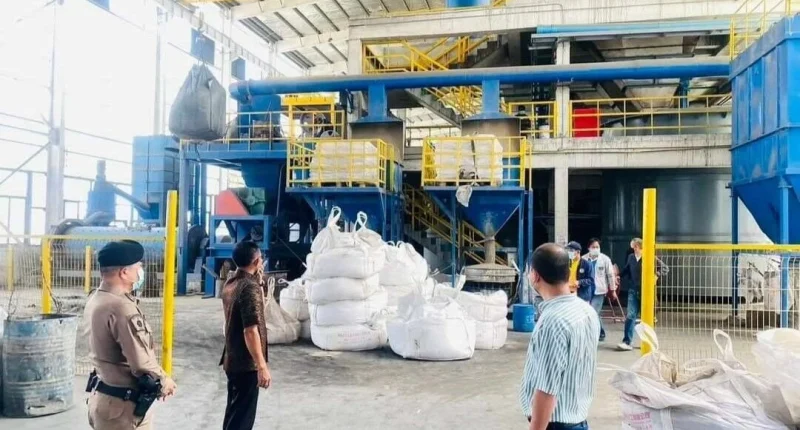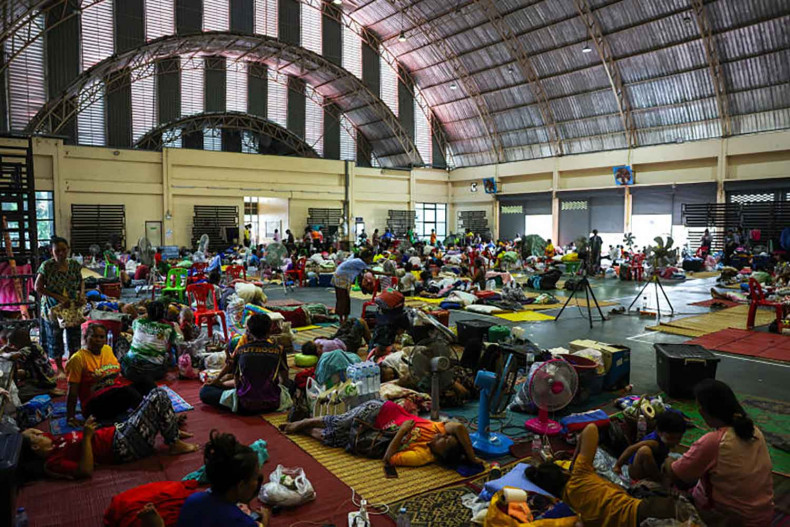A recent explosion at a zinc factory in Kabin Buri, Prachinburi, has brought tragedy and shock, as two Burmese workers lost their lives and 28 others sustained injuries. This devastating accident serves as a stark reminder of the importance of workplace safety, especially when handling hazardous materials.
Explosion at Thai Zinc Factory Results in Fatalities and Injuries
Incident Overview: The Explosion and Immediate Impact
The explosion took place on October 27 at a zinc production facility, where around 70 employees were present during the chemical mixing process. Out of a total workforce of 232, many workers on-site were exposed to hazardous chemicals and were impacted by the sudden blast. According to local officials, all victims were migrant workers from Myanmar.
- Fatalities: Two Burmese workers lost their lives, with one passing instantly and the other succumbing to injuries at a local hospital.
- Injuries: 28 workers sustained injuries, requiring immediate medical assistance.
Cause of Explosion: Hazardous Chemical Mixing
The explosion occurred during a critical stage of the production process involving lead and sulphuric acid, chemicals known for their reactivity. Dr. Manu Sukolsakul, Health Region 6 Inspector, explained that two workers were standing on a tank lid when it erupted, hurling them into a vat intended for melting steel and aluminum.
Lack of Safety Measures and Signage
According to a Chinese engineer on-site, the facility lacked adequate hazard signage, making it difficult for workers to identify high-risk areas. This critical absence of warning signs contributed to the severity of the incident, putting many workers in harm’s way.
Emergency Response and Immediate Actions Taken
Deputy Governor Chanathip Kokmani and the Provincial Disaster Prevention and Mitigation Command were swift in their response, providing on-site assistance to prevent further exposure to hazardous chemicals. In addition, health and safety officials advised the public to avoid the vicinity due to potential airborne toxins.
Public Health Act Enforcement: Halting Operations for Safety Inspections
In response to the explosion, local authorities enforced the Public Health Act, mandating that the factory cease all operations. A full safety inspection is required to ensure compliance with health and safety protocols and to identify necessary upgrades to prevent future accidents.
Implications and Moving Forward: Ensuring Workplace Safety
This tragic incident highlights the need for stringent safety protocols in facilities handling hazardous chemicals. In light of this event, factory management must prioritize:
- Clear Hazard Signage: Marking high-risk areas to alert workers.
- Rigorous Safety Training: Training workers on handling dangerous chemicals safely.
- Comprehensive Safety Inspections: Conducting routine inspections and implementing corrective actions.
Conclusion: A Call for Enhanced Safety Standards
The tragic loss of two workers and injuries to 28 others underscores the urgent need for enhanced safety protocols in industrial settings. This explosion at a Thai zinc factory serves as a sobering reminder for employers to prioritize worker safety, implementing the necessary measures to prevent future tragedies.









